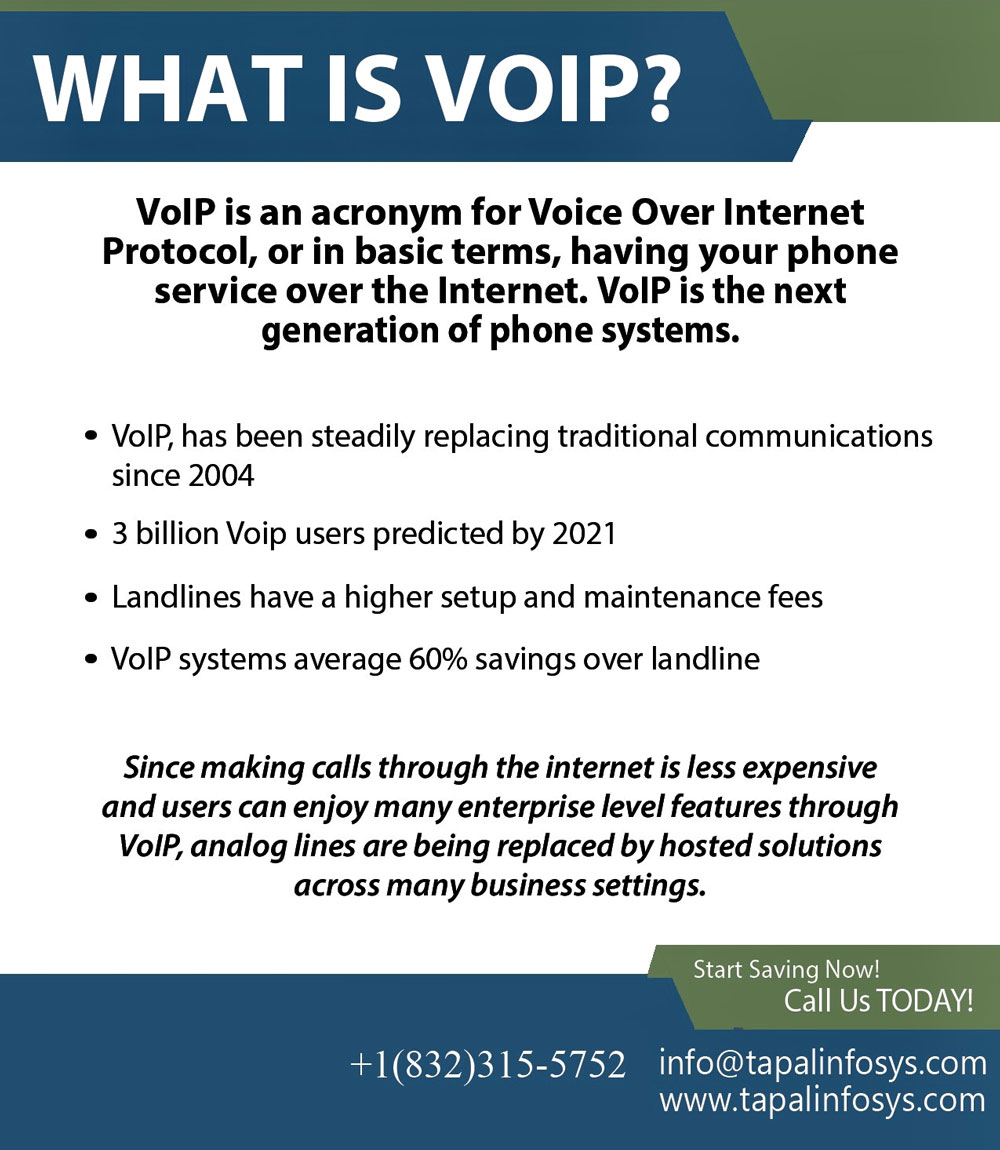In today’s world, VOIP has come a long way since it’s inception. Once upon a time the programs suffered from call-quality issues and reliability that drove prices down over traditional phone lines. However, now that cloud-based systems have evolved and mobile technologies have become standard across the telecommunications industry, VOIP has evolved to contain as good or greater quality than traditional phone line systems, and has evolved to be able to handle a business’s telecom needs across the globe without having to have expensive hardware to do so.
Cloud hosted phone systems are the evolution that VOIP or Voice Over Internet Protocol phones has made and it’s based off the same networks you might use to send and view movies, videos, messages and emails.
What is VOIP?
VOIP (Voice Over Internet Protocol) is the heart of cloud hosted phone services and is the technology that permits voice and telephone switches to transmit data across IP networks that also transmit internet traffic like email, chat, video and social media.
Because phone calls can now be placed using an IP phone, also referred to as a “soft phone”, that takes advantage of software to make the phone call, your phone signaling data is transmitted over an existing network. Therefore, no dedicated hardware or infrastructure is actually required to use the phone system.
Why is it prevailing over the traditional phone systems?
What makes VOIP so special for businesses as a technology is that it totally eliminates the old need for a business to invest large sums of capital in all of the equipment and infrastructure needed for operating a basic phone switch, such as: hardware, wiring, servers and networking equipment.
All you need is a working computer connected to the internet and access to the VOIP software.
What that means for you is that, regardless of what’s going on around you, you always have access to your communications. The office could even lose power and you’d still be able to make phone calls through your smart phone by using the VOIP app.
SIP
VOIP software uses the Session Initiation Protocol (SIP) to send and receive voice and video calls over IP networks. SIP is what creates, modifies and ends two-party and multi-party calls and sessions and can contain multiple media streams (such as messaging, video and voice).


